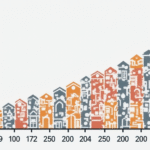Introduction and Relevance of the Author
I recently completed the Corporate Governance Certification Program at the Higher Leadership Institute of Anáhuac University, which allowed me to delve deeper into the fundamental principles of modern business management. This training coincides with the publication in The New England Journal of Medicine analyzing the corporatization of US healthcare systems, offering valuable perspectives to contrast with Mexico’s current situation.
Steven Lipstein, former CEO of BJC HealthCare, demonstrates in his article how effective corporate governance enables resource optimization through economies of scale, risk diversification, and professional management. These elements are precisely what Mexico’s healthcare system urgently requires, yet the current federal administration has chosen to ignore them systematically.
Corporate Governance in Healthcare: Key Principles and Benefits
Corporate governance in healthcare organizations is based on principles of accountability, transparency, integrity, and efficiency. When implemented correctly, it allows for the strategic alignment of all available resources to maximize results while minimizing operational costs. As Lipstein notes, well-governed healthcare systems achieve four fundamental objectives:
- Providing quality care
- Operating financially responsibly
- Ensuring long-term sustainability
- Fulfilling their social mission
Economies of scale in healthcare allow for the distribution of fixed costs—such as medical technology, information systems, specialized human resources, and infrastructure—over a broader range of services. This results in greater operational efficiency and better utilization of highly specialized technical and human resources.
International evidence shows that integrated systems can reduce costs by up to 15% while improving quality indicators.
The Mexican Healthcare System: A Centralized Monopsony
In stark contrast to these principles, the federal government has constructed a centralized healthcare monopsony over seven years, deliberately ignoring the wealth of resources available in Mexico’s healthcare system. Recent reforms to eliminate the popular insurance, dismantle state services through INSABI, and now IMSS-Bienestar and the concentration of resources from budget items 19, 12, 47, and 33 into item 56 for the 2026 expenditure budget, while preserving the monopsonies of social security institutions, represent the culmination of this outdated and counterproductive vision.
This excessive centralization violates basic fiscal federalism principles and generates multiple economic distortions. By concentrating 965,962 million pesos annually for 2026 into “one institution” (which appears to be many), it eliminates the mechanisms of competition and continuous improvement that characterize efficient systems. The predictable result is deterioration in quality, increased per capita costs, and reduced access to healthcare services.
Empirical Evidence of the Public Sector’s Failure
Currently, 45.5 million people lack effective access to medical care, compared to 20.1 million at the beginning of the previous six-year term. This is empirical evidence of the public sector’s monopolistic model’s failure in healthcare.
Ignoring Private Sector Capacity
One of the most serious errors in current healthcare policy is systematically ignoring the installed capacity of the private sector and non-profit organizations. According to INEGI data, the private healthcare sector represented 49% of medical units in 2018, a proportion that increased to 63% in 2022. This expansion responds to the public sector’s inability to meet actual demand.
In 2021, 54% of the Mexican population received medical attention in private services, a figure that remained at 48.8% in 2022. In regions like Pacific-Center, Central, and the State of Mexico, six out of ten people rely on the private sector for their healthcare needs. This demonstrates the existence of underutilized technical capacity, specialized human resources, and medical infrastructure due to the absence of systemic integration mechanisms.
Private healthcare spending accounts for 3.1% of GDP, surpassing the OECD average of 2.6%. This private investment could efficiently complement public spending through well-structured public-private collaboration schemes, but monopolistic ideology prevents taking advantage of these synergies.
Lack of Corporate Governance in Public Health Institutions
The transformation of INSABI into IMSS-Bienestar exemplifies the complete absence of corporate governance principles in public health coordinating institutions. Transparency in resource management has dramatically decreased: while previously, geographical distribution of expenditure was reported transparently, now 98% of resources are artificially classified as spent in Mexico City.
This lack of transparency eliminates the basic mechanisms of accountability and performance evaluation that characterize well-governed organizations. Without reliable information on resource distribution, regional health outcomes, and operational efficiency, it’s impossible to implement systematic improvements or correct detected deficiencies.
The absence of independent boards, audit committees, and external evaluation mechanisms turns these institutions into bureaucratic structures immune to continuous improvement. The inevitable result is the progressive deterioration of quality and efficiency, precisely what we observe in Mexico’s current healthcare system.
Monopolies and Inefficiencies in Healthcare
The healthcare economy consistently demonstrates that monopolies generate inefficiencies, raise costs, and reduce innovation. The public security social model and now IMSS-Bienestar, by eliminating competition among providers and centralizing decision-making, reproduce all the economic pathologies of monopolistic systems.
The loss of specialized economies of scale is particularly severe. When private hospitals, assistance organizations, and state public institutions operate fragmentedly, resources are wasted on duplicated infrastructure, underutilized specialized equipment, and inadequate capital human resource utilization.
Out-of-pocket spending reached 49.4% of total healthcare expenditure in 2024, the highest OCDE figure. This metric evidences the public sector’s failure to provide effective coverage, forcing families to seek private alternatives with their own resources.
An efficiently governed healthcare system would significantly reduce this indicator through better coordination between sectors.
Conclusion: Embracing Modern Corporate Governance
My corporate governance certification has reaffirmed that an institution’s quality fundamentally determines the efficiency in resource use and achieving organizational objectives. Mexico’s healthcare system urgently needs to abandon the centralized monopsony anachronism and adopt modern governance principles that allow for the full utilization of all available resources.
The evidence is clear: as long as we ignore the capacity of the private sector, non-profit organizations, and state governments, we will continue to waste resources, raise costs, and degrade the quality of care. The health of Mexicans deserves a system based on efficiency, transparency, and results, not outdated ideology.
The choice is evident: we can continue with the demonstrably failing monopolistic model or build an integrated system with modern governance that maximizes population well-being.
My corporate governance certification has prepared me to lead this necessary transformation from a legislative standpoint, offering constructive criticism, normative proposals, and commitment to implementing public policies for all Mexicans.
The author (www.ectorjaime.mx) is a general surgery specialist, certified in public health, and holds doctorates in health sciences and public administration. He is a legislator and advocate for Mexico’s public health, reelected PAN group member in the LXVI Legislature.






